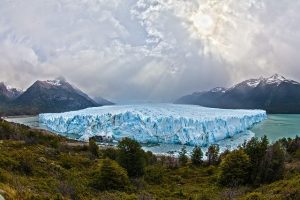
It explicitly includes the increase in the Earth’s global average temperatures and the climatic influences. You can check out https://www.ine.pt/ine_novidades/Estatisticas_Ambiente_2010/files/assets/seo/page16.html to know for a national plan for the attribution for climate change. Climate change is the term currently preferred by scientists. Infrared radiation generated by radiating it to the Earth’s surface is called a greenhouse gas.
 The most significant origin of the current global warming trend is the human development of the greenhouse effect. This warming occurs when pollutants in the atmosphere are heated from Earth to space. Even a small increase in global warming extreme temperature could lead to consequences such as rising sea levels, population displacement, food supply disruption, flooding, and deteriorating well-being. Indeed, human health is the main burden of the impacts of climate change.
The most significant origin of the current global warming trend is the human development of the greenhouse effect. This warming occurs when pollutants in the atmosphere are heated from Earth to space. Even a small increase in global warming extreme temperature could lead to consequences such as rising sea levels, population displacement, food supply disruption, flooding, and deteriorating well-being. Indeed, human health is the main burden of the impacts of climate change.
Effects of Heat Waves
Increased greenhouse gas concentrations lead to both regular and extreme temperature developments. Loss of temperature regulation in the hot environment can cause heat cramps, heat exhaustion, heatstroke, hyperthermia in extreme heat, and hypothermia and freeze in extreme cold. High temperatures can be the reason for chronic illnesses like respiratory and diabetic illness.
Effects of Air Pollution
Increased carbon dioxide levels (CO2) also promote plants’ development that releases allergens into the air. More massive amounts of pollen and many more pollen allergy seasons can grow allergic sensitivity and asthma, limiting their spread in the workplace and among teachers. Low air quality, both outside and inside, can harm the human respiratory and cardiovascular system.
Effects on Emotional Health
 The consequences of climate change for emotional health range from minimal stress and stress symptoms to clinical disorders such as anxiety, depression, post-traumatic stress, and suicidal tendencies. Children, the elderly, women, especially pregnant women and those who have given birth, people with pre-existing mental illnesses, economically disadvantaged people, and the homeless are very vulnerable to emotional health consequences. Climate change is now a global problem, causing countless adverse effects, including on people’s health.
The consequences of climate change for emotional health range from minimal stress and stress symptoms to clinical disorders such as anxiety, depression, post-traumatic stress, and suicidal tendencies. Children, the elderly, women, especially pregnant women and those who have given birth, people with pre-existing mental illnesses, economically disadvantaged people, and the homeless are very vulnerable to emotional health consequences. Climate change is now a global problem, causing countless adverse effects, including on people’s health.
Results of Extreme Weather
Climate change is causing an increase in the frequency and severity of many extreme events that can have health impacts, such as trauma and flood drowning. Health effects can also occur before and after an extreme event, as people involved in disaster preparedness and post-event clean-up put their health at risk. The severity and extent of extreme events’ health effects depend on the extreme event’s physical products.
Results of Vector-Borne Disease
These could cause and release bacteria in the air. Seasonality, distribution, and prevalence of vector-borne because of climate change. Climate change is more of the long-term impacts on transmitting vector-borne diseases and patterns of infection, practical seasonal risks, and illnesses over the decades.
Effects of Water-Related Contaminants
Climate change affects freshwater and marine water sources to increase individual exposure to water contaminants that lead to illness. Toxins from chemicals can also cause Water-related diseases in water sources through personal activities. Exposure occurs through consumption, direct contact with contaminated drinking or water that is recreational.
Impact on Food Safety
 Climate change is likely to affect regional, international, and local food security by disrupting food availability, reducing its availability, and making its use more difficult. Higher levels of CO2 can reduce levels of essential minerals and proteins for many of the most consumed crops such as wheat, rice, and potatoes, with potentially harmful consequences for human nutrition. The low nutritional quality of food is much more likely to harm people’s sensitive parts. Severe impact of climate change on human health, most of us must join efforts to reduce greenhouse gas emissions by improving transport options, energy, and food use, mainly by reducing air pollution.
Climate change is likely to affect regional, international, and local food security by disrupting food availability, reducing its availability, and making its use more difficult. Higher levels of CO2 can reduce levels of essential minerals and proteins for many of the most consumed crops such as wheat, rice, and potatoes, with potentially harmful consequences for human nutrition. The low nutritional quality of food is much more likely to harm people’s sensitive parts. Severe impact of climate change on human health, most of us must join efforts to reduce greenhouse gas emissions by improving transport options, energy, and food use, mainly by reducing air pollution.
